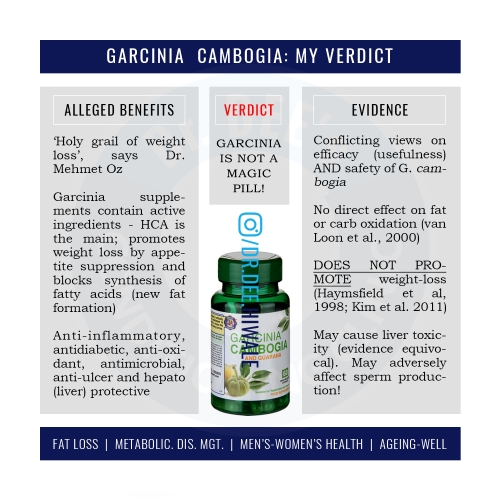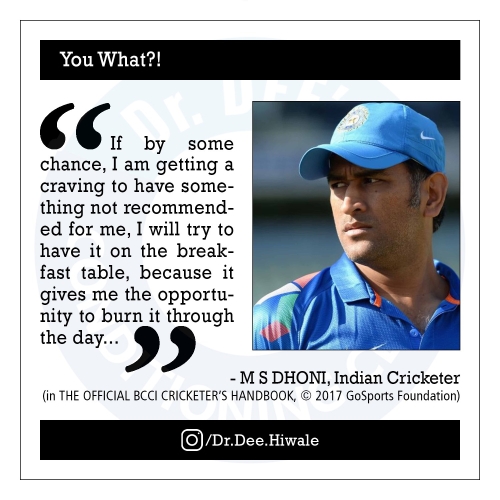I am sure you have seen advertisements (if you are in India) of this famous Bollywood actress having lost tons of weight using this amazing supplement containing G. cambogia). For those in the US, you must remember the Melissa McCarthy talking about her use of the magic pill on The Ellen Degeneres Show (http://www.fatfighterblogs.com/melissa-mccarthy-weight-los…/). So it is really that effective, as is claimed in the long, winding and apparently quite convincing article that goes with it?
Well, here’s my take it… Commercial products containing G. cambogia catapulted onto the market and have received considerable positive and negative media attention. It’s popularity and notoriety is confirmed by the more than 11 million links (2015) displayed when entering the search term ‘Garcinia cambogia‘ on Google®. Perhaps its most positive (and negative) connotation was with the television personality Dr Mehmet Oz. Dr Oz has been quoted as saying that G. cambogia is the “Holy Grail of Weight-Loss”. However, he was later reprimanded for such health claims by a senate subcomittee in the USA (2014). He was also subsequently sued (along with supplements manufacturer Lebrada) for such health claims (http://www.dailymail.co.uk/…/Dr-Oz-sued-weight-loss-supplem…). There are some who fleetingly describe G. cambogia as one of ‘Dr Oz’s three biggest weight-loss lies’. It is evident that there is uncertainty about the use of this plant especially as more information becomes available.
SCIENCE
In scientific literature, the evidence that Garcinia cambogia causes weight loss, is lacking: Let us have a look at a few studies.

Here are a few examples:
- Heymsfield et al. carried out the first ever randomized controlled trial (RCT) to assess G. cambogia for its alleged weight loss effects. Study subjects were between 18–65 years of age, with a BMI of between 27 and 38 kg/m2 and otherwise healthy. The study duration was 12 weeks. 135 patients were shortlisted and randomly assigned to receive 1,000 mg of G. cambogia extract or a placebo 3 times daily 30 minutes prior to meals; all were encouraged to eat a high-fibre, low-energy diet (1,200 kcal/day) and maintain their usual physical activity. The main outcomes used were changes in body weight and fat mass. The mean ± S.D. weight loss was 3.2 ± 3.3 kg for the treatment group compared with 4.1 ± 3.9 kg for the placebo group (p = 0.14). The mean ± S.D. reduction in fat mass was 1.44% ± 2.15% for the treatment group and 2.16% ± 2.06% for the placebo group (p = 0.08). In effect, the researchers concluded that G. cambogia did not increase weight or fat loss beyond placebo use.
- Mattes and Bormann, in a study published in 2000, report the effects of G. cambogia on appetite, weight, and body composition. The study participants received 800 mg of G. cambogia or a placebo 3 times daily 30–60 minutes prior to meals in a double-blind manner and were instructed to eat a specific diet of 1,200 kcal/ day for 12 weeks. The investigators concluded that while G. cambogia does not appear to be an efficacious appetite suppressant, it may aid in weight loss. However, there were major shortcomings in the study: the average body fat loss was 4.1% in the treatment group and 3.0% in the placebo group, (not a statistically significant difference!).Furthermore, a power analysis was not performed, and only women who completed the study were analysed, which may have produced results that overstate the potential for weight loss with G. cambogia use and do not apply to men.
- In a 2003 double-blind RCT, by Hayamizu et al, talks about 44 study participants who were randomly assigned to receive either 555.75 mg of G. cambogia (60% HCA; Nippon Shinyaku, Ltd., Kyoto, Japan) or a placebo 3 times daily 30 minutes before meals for 12 weeks in a double-blind manner and were required to follow a diet restricted to 2,250 kcal/day for men and 1,800 kcal/day for women OR recieve a placebo! The primary endpoint was visceral fat accumulation, and the secondary endpoints included various body indices. Although this study s concluded that G. cambogia may aid in reducing visceral fat accumulation, a power analysis was not performed, and the actual values for weight loss were unclear.
- Kim et al. in a ‘double-blind RCT published in 2011 concluded that G. cambogia extract and G. max leaves failed to promote weight loss (or lower total cholesterol concentrations in overweight individuals). Eighty-six volunteers 20–60 years of age with a BMI of 23–29 kg/m2 were randomly assigned to a daily use of either 2,000 mg of G. cambogia, 2,000 mg of Glycine max (soybean) leaves or a placebo), with each administered in 2 equally divided doses in the morning and evening for 10 weeks. The study participants were instructed to maintain their habitual diet. None of the results (from any group) showed differences of statistical significance. The mean ± S.E. change in body fat was 0.67% ± 0.22% in the G. cambogia group, –0.16% ± 0.24% in the G. max group, and 1.39% ± 0.42% in the placebo group (p < 0.05 for each active treatment versus placebo use). The mean ± S.E. change in weight was 0.65 ± 0.43 kg in the G. cambogia group, –0.18 ± 0.30 kg in the G. max group, and 0.68 ± 0.34 kg in the placebo group.
For more evidence, look up ‘Garcinia cambogia for weight loss by Stacy L. Haber et al., 2018
PICTURE CITATIONS SOURCE: A comprehensive scientific overview of Garcina cambogia. Semwal et al., 2015
TAKE HOME MESSAGE:
The weight-loss inducing ability of Garcinia cambogia HAS NOT BEEN PROVEN beyond doubt. Also, more recently, there have been concerns raised about the safety of its use for weight / fat loss (esp., on long-term use or in combination with other drugs). So, in effect, IT DOESN’T DO MUCH BUT CAUSES HARM.
In my view, CALORIE DEFICIT (EATING LESS, if you want a nice and easy term), is the best darn method to lose weight (use caffeine, if you struggle with appetite suppression). And, in any case, none of these ‘weight loss pills’ – Garcinia, green tea or the likes – will ever work in the absence of a calorie deficit.
Read Full Post »


You must be logged in to post a comment.